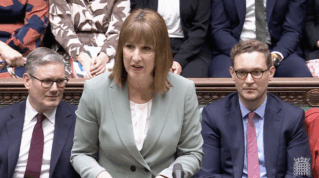We live in the world we live in, not the world we would like to live in. That this a truism, but it is no less true for that.
The world we live in does not have education as a priority. That is true for political parties and for the public. It is even more true for further education.
Polling by Public First found that just 15 per cent of people think that the country should spend more on schools (sigh). Six per cent think we should spend more on higher education (double sigh). Only four per cent think that we should spend more on further education (triple sigh).
These low figures are in spite of the fact that people are 50 per cent more likely to think that the quality of further education has fallen than risen since 2010.
Labour voters are even less keen than Conservative voters: four per cent of Labour voters want more spending on further education, compared with five per cent of Conservative voters. The same for apprenticeships: 8 per cent of Labour voters want more money to be spent, compared with 13 per cent of Conservative voters.
The sector could pursue a ‘Millwall’ strategy: “No one likes us, we don’t care”. After all, not everything has to be put to the people in a referendum; there will be no vote on further education funding.
Politicians can ignore their voters. They often do. So the sector could concentrate on key opinion formers and ministers, and it might work. After all, Millwall did win the last five games of the season.
But ignoring the public is risky. The brute reality is that politicians have to listen or they will not get re-elected. Millwall don’t win five in a row very often.
This is not a call to give up or to reduce our aspirations or asks. Quite the opposite. It is a call to involve more people. Further education will do better when more people understand it. The best way for more people to understand further education is for them to experience it.
Now is a time for engagement, engagement, engagement
That means now is a time for engagement, engagement, engagement. A further education college must be the heart of the community.
I walk past such a college twice a day on my commute. I have no idea what happens there. That needs to change. We need people to see for themselves (or at least be aware of) what is going on. Public knowledge of and about further education is the first stage to wider public support.
However, what really matters is not knowledge but experience. Almost everyone has experience of the NHS, and all of us expect to experience it in future. Guess what? More than two-thirds of people want more spent on the NHS.
My local university, Kingston allows people to use the library as a quiet study space. You don’t have to be a student and you don’t have to be studying; you can just be someone who wants a quiet place to get on with stuff. You can use the cafe as well.
For sure, there are restrictions: the public are excluded in exam season and must leave by 9pm. Fair enough. In truth, I doubt that many local people use it. Kingston does, however, get a lot of publicity. It makes them seem at the heart of the community. They certainly are seen to want to be at its heart. Good for them.
The sector’s expectations and hope are running high, and the reality is that there will be a lot of disappointment and heartache over the next five years.
The Labour party (who as I write are on course to win the election by a mile) have been careful not to promise what they cannot deliver. That is good.
In the meantime, for this sector to do better if and when more money does become available we need to win as many hearts and minds as possible.
We need not just to tell our story, but to make it everyone’s story.

















Another truism is that history tells us that very very very few manifesto pledges are ever kept.
While it might be comforting to believe (or suggest in articles) that politicians have to listen to people in order to get re-elected, if what is on offer is little more than empty promises, then why engage, engage, engage. All that does is perpetuate a broken political system.
Engaging with something that is not credible is a waste of time and resource. I’d be more inclined to use a little of that effort to:
1. pass media regulations that require political lobbying organisations to declare their affliations.
2. Create and maintain an easily accessible public record of manifesto pledges and current progress (lets say the last 50 years).
3. A none of the above option on the ballot paper (open the door to honesty and integrity).